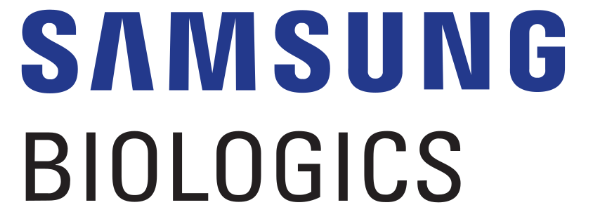
CDMO Samsung Biologics’ $897 Million Pfizer Partnership Signals the Potential of Newly Constructed Plant 4
Samsung Biologics, a contract development and manufacturing organization (CDMO), recently added to its industry-leading biomanufacturing capacity with the completion of its fourth plant. Plant 4, which became fully operational in June, adds 240,000 liters of capacity to give Samsung Biologics a total of 604,000 liters. In July, this milestone was punctuated by the signing of an extended partnership with Pfizer, a contract valued at $897 million that’s expected to utilize the new capabilities of Plant 4 to produce biosimilars.
“We are pleased to extend the strategic collaboration with Pfizer as we share and support their strong vision to bring innovative solutions for patients around the globe,” said John Rim, president and CEO of Samsung Biologics, in a recent statement. “This new meaningful partnership comes just as our Plant 4 is fully completed early this month as we had previously committed and are on the move for future expansion into our second campus in order to provide our clients with even more flexible and advanced manufacturing technology.”
A New CDMO Era
Samsung Biologics’ Plant 4 represents a new era in biomanufacturing. Taking only 31 months since breaking ground in November 2020 to reach full operations, the plant solidifies the company’s status as a world leader, with its capacity now constituting over a quarter of total global CDMO production.
The rapid pace of Plant 4’s construction reflects an industrywide urgency to meet escalating demands for biopharmaceutical products, which has seen a steady rise in recent years with popular medicines like Humira and mRNA COVID-19 vaccines. The plant’s accelerated construction and versatile capabilities may also catalyze a shift in how CDMOs approach scalability and agility, possibly setting a new benchmark for future facilities.
Plant 4 is a testament to Samsung Biologics’ ability to execute large-scale projects within ambitious timelines. This capability may provide a competitive edge in an industry where time-to-market is often critical.
Investing in Sustainability and Future Growth
Plant 4’s design also showcases Samsung Biologics’ dedication to sustainable manufacturing. Measures such as a 1,300 kW solar power generator, a factory energy management system to reduce emissions, and enhancements to recycling processes at the plant demonstrate a tangible commitment to environmental stewardship.
The integration of sustainable practices at this scale isn’t just an industry trend; it’s a powerful signal to the market that Samsung Biologics is invested in long-term sustainable development. This commitment was underlined by the company’s recent release of its annual environmental, social, and governmental report, which outlines a target of net-zero emissions by 2050 and 100% use of renewable energy sources.
Blending state-of-the-art manufacturing with environmental responsibility could become a defining feature for the leading CDMOs of the future.
“Samsung Biologics is engaged in this work because we want to leave the world better than we found it,” said Rim in the ESG report. “2022 was a foundational year for us, and we are steadfast in our commitment to drive substantial progress and make a more meaningful impact in 2023 and beyond.
“We believe that the primary way to effectively tackle global climate challenges is by engaging with our suppliers and partners to amplify our collective impact and find solutions to decarbonize at all levels,” he added.
Pfizer Partnership and Strategic Alignment
The $897 million Pfizer deal serves as a significant marker of the potential of Plant 4. Centered on biosimilar production, this partnership coincides with the broader trend of pharmaceutical giants collaborating with CDMOs, thereby fostering a symbiotic relationship that allows companies like Pfizer to focus on research and development.
It could also showcase a potentially transformative approach to handling complex, large-scale biosimilar production. Additionally, the significant investment in the biosimilars space could signal a shift in the pharmaceutical industry’s focus toward biosimilars, which often serve as lower-priced alternatives to standard biologic medicines.
In terms of broader strategy, Samsung Biologics is taking steps to prevent the theft of its proprietary technology and standard operating procedures, the keys to the reputation that’s led to its large-scale contracts.
In June, a South Korean court handed out a preliminary injunction against Lotte Biologics after Samsung Biologics filed a complaint that Lotte was stealing trade secrets. It’s not the first complaint against Lotte, whose CEO is a former Samsung Biologics head of drug development. The case is scheduled to be decided in August, and it could have wide-ranging effects on Lotte, which was founded just last year.
Broader Industry Implications
Samsung Biologics’ recent activities serve as a microcosm of the evolving CDMO industry. The partnership with Pfizer, the strategic focus on biosimilars, the investment in sustainable technology, and the ambitious plans for future expansion are all emblematic of broader industry trends.
The growing focus on outsourcing by large pharmaceutical firms, coupled with Samsung Biologics’ recent achievements, may mark a pivotal moment in the CDMO landscape. It reflects a possible shift toward more diversified, responsive, and collaborative relationships between CDMOs and pharmaceutical giants, shaping the industry’s future dynamics.
As Samsung Biologics continues to break new ground, both in technological advancements and strategic collaborations, it stands poised to remain a leading force in the biopharmaceutical landscape.







